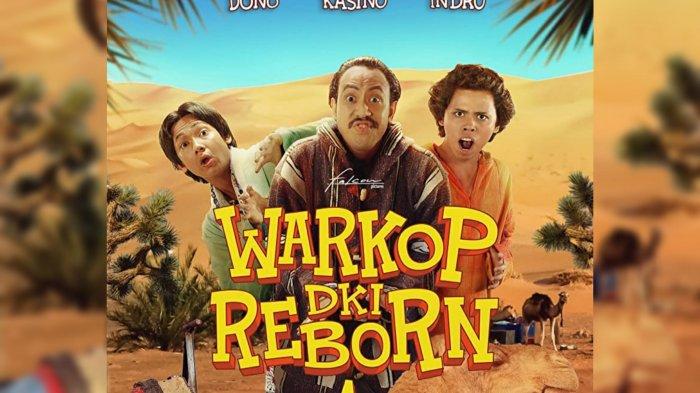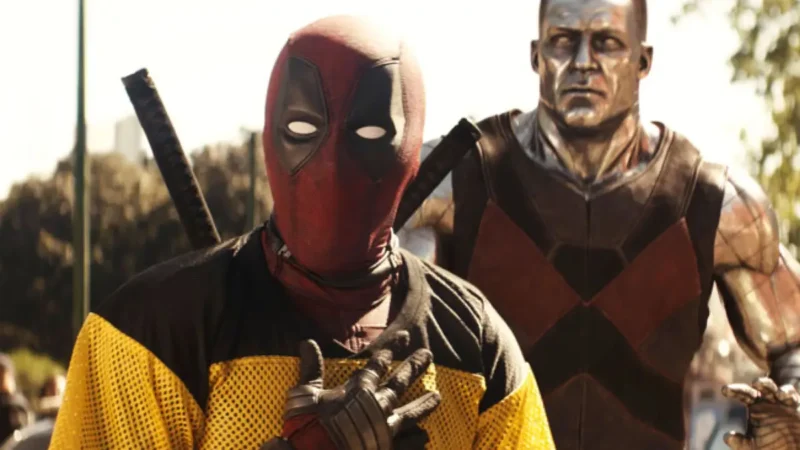Warkop DKI Reborn In the annals of Indonesian cinema, few comedic troupes hold as much reverence and nostalgia as Warkop DKI. Known for their irreverent humor, slapstick antics, and infectious charm, the trio of Dono, Kasino, and Indro captured the hearts of audiences across generations with their iconic films in the 1980s and 1990s. Decades later, the spirit of Warkop DKI lives on through “Warkop DKI Reborn,” a cinematic revival that pays homage to the legendary comedy troupe’s enduring legacy. Let’s explore the phenomenon of Warkop DKI Reborn and its impact on Indonesian cinema.
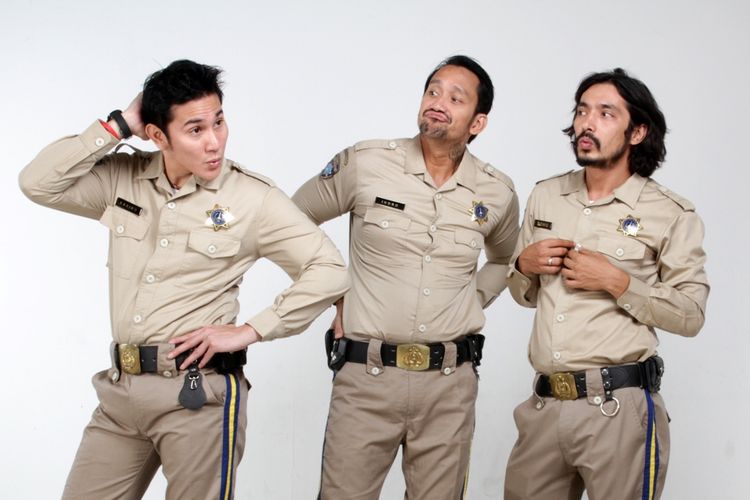
The Legacy of Warkop DKI:
Founded in the 1970s by Wahjoe Sardono, Warkop DKI rose to prominence with the comedic talents of Dono (Indrodjojo Kusumonegoro), Kasino (Kasino Hadiwibowo), and Indro (Indrodjojo Kusumonegoro), whose chemistry and comedic timing endeared them to audiences nationwide. With their signature catchphrases, memorable characters, and hilarious sketches, Warkop DKI became synonymous with Indonesian comedy, spawning a prolific filmography that remains beloved to this day.
Warkop DKI Reborn: A New Chapter:
In 2016, the spirit of Warkop DKI was resurrected with the release of “Warkop DKI Reborn: Jangkrik Boss! Part 1,” directed by Anggy Umbara. The film introduced a new generation of viewers to the iconic trio’s humor while paying homage to their classic films. Starring Vino G. Bastian, Tora Sudiro, and Abimana Aryasatya as the titular “Jangkrik Boss” trio, the movie captured the essence of Warkop DKI’s comedy while injecting fresh energy and modern sensibilities.
Success and Cultural Impact:
“Warkop DKI Reborn: Jangkrik Boss! Part 1” was a commercial and critical success, delighting audiences with its nostalgic references, slapstick humor, and heartfelt tributes to the original trio. The film’s box office success paved the way for a sequel, “Warkop DKI Reborn: Jangkrik Boss! Part 2,” which further cemented the franchise’s place in Indonesian cinema history.
Modernization and Adaptation:
While staying true to the spirit of the original Warkop DKI films, “Warkop DKI Reborn” has also embraced modern filmmaking techniques and storytelling conventions. The franchise incorporates contemporary themes, references, and humor, ensuring its relevance to today’s audiences while honoring the timeless appeal of Warkop DKI’s comedy.
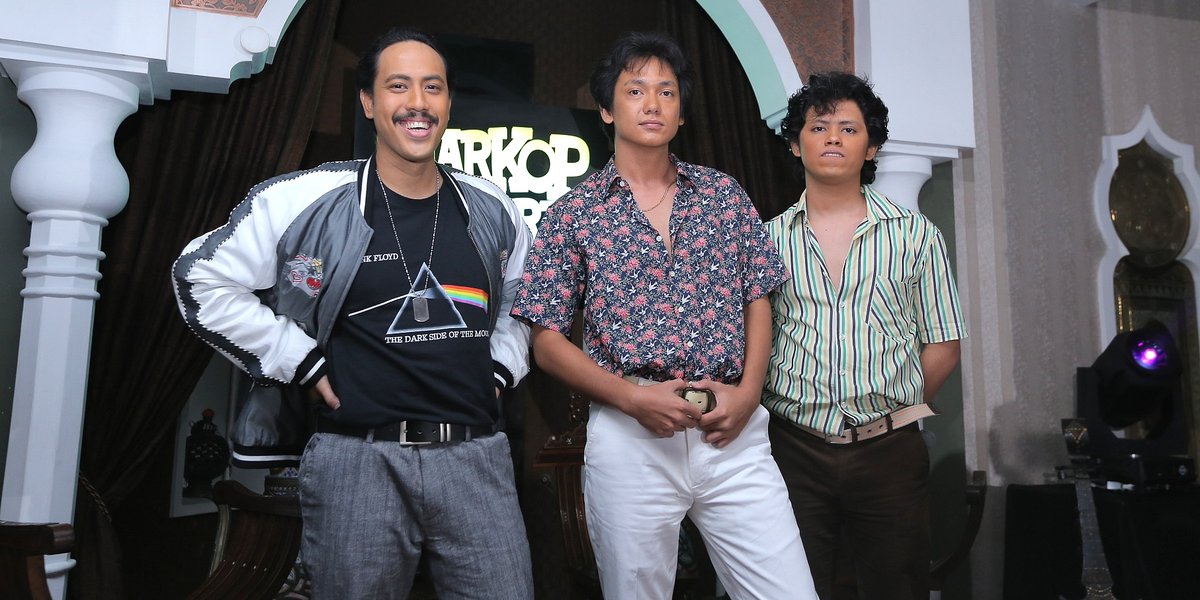
Continued Success and Future Prospects:
With the success of the “Warkop DKI Reborn” franchise, the legacy of Indonesia’s most beloved comedy trio lives on, inspiring new generations of filmmakers, comedians, and fans. As the franchise continues to evolve and expand, it remains a testament to the enduring popularity and cultural significance of Warkop DKI’s timeless humor and comedic genius.
“Warkop DKI Reborn” is more than just a cinematic revival; it is a celebration of Indonesia’s rich comedic heritage and a tribute to the enduring legacy of Warkop DKI. With its blend of nostalgia, humor, and modern sensibilities, the franchise has captured the hearts of audiences old and new, ensuring that the spirit of Dono, Kasino, and Indro lives on for generations to come. As the laughter continues to echo through theaters nationwide, “Warkop DKI Reborn” remains a shining beacon of Indonesian comedy and cinematic excellence.
Analyzing the Strengths and Weaknesses of Warkop DKI Reborn: A Modern Take on Classic Comedy
“Warkop DKI Reborn” stands as a modern homage to the iconic Indonesian comedy troupe, Warkop DKI, renowned for their timeless humor and memorable characters. While the revival has garnered praise for revitalizing the spirit of the original films, it also faces scrutiny for its departure from the classic formula. Let’s delve into the strengths and weaknesses of Warkop DKI Reborn, examining how hometogel it honors the legacy of its predecessors while carving its own path in Indonesian cinema.
Strengths:
- Nostalgic Appeal: One of the primary strengths of Warkop DKI Reborn lies in its ability to evoke nostalgia among audiences who grew up watching the original films. By paying homage to the classic humor, catchphrases, and characters of Warkop DKI, the revival taps into a sense of fondness and familiarity that resonates with fans across generations.
- Modernization: Warkop DKI Reborn successfully modernizes the franchise by incorporating contemporary themes, references, and humor. While staying true to the essence of the original films, the revival adapts to the tastes and sensibilities of today’s audiences, ensuring its relevance in a rapidly evolving cinematic landscape.
- Talented Cast: The cast of Warkop DKI Reborn brings fresh energy and charisma to the beloved characters, infusing them with new life and vitality. With talented actors such as Vino G. Bastian, Tora Sudiro, and Abimana Aryasatya stepping into the iconic roles, the revival benefits from their comedic prowess and on-screen chemistry.
- Box Office Success: Despite initial skepticism, Warkop DKI Reborn has proven to be a commercial success, attracting audiences to theaters nationwide and revitalizing interest in the franchise. The film’s box office performance demonstrates the enduring popularity and cultural significance of Warkop DKI’s comedy.
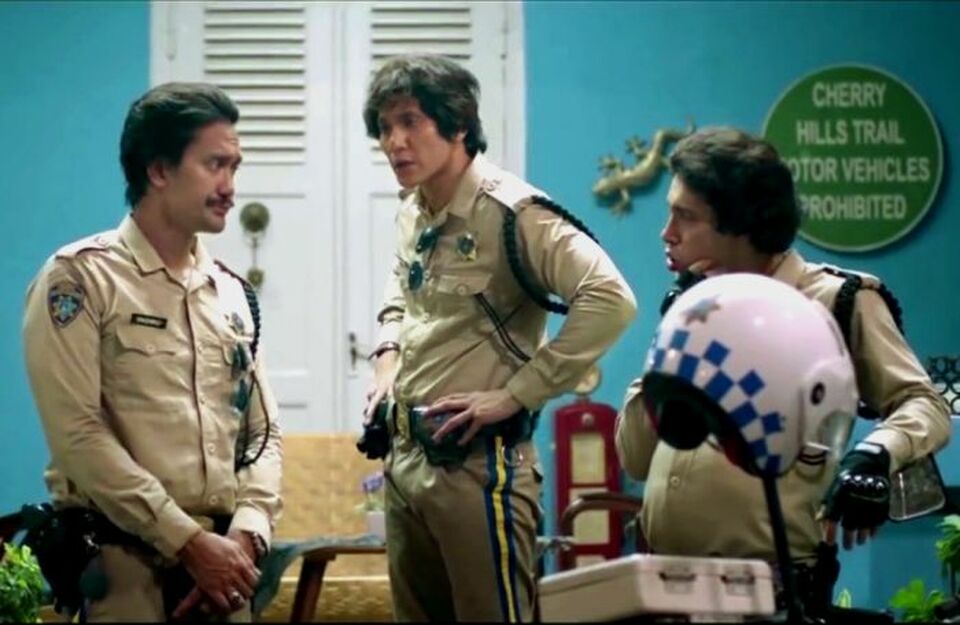
Weaknesses:
- Deviation from Classic Formula: While Warkop DKI Reborn pays homage to the original films, some critics argue that it deviates too far from the classic formula that made Warkop DKI iconic. The revival’s reliance on modern humor and storytelling conventions may alienate purists who prefer the timeless charm of the original films.
- Lack of Originality: Despite its modernization efforts, Warkop DKI Reborn has been criticized for lacking originality and relying too heavily on nostalgia. Some audiences feel that the revival fails to capture the spontaneity and creativity of the original Warkop DKI films, instead opting for safe and predictable humor.
- Character Depth: Another weakness of Warkop DKI Reborn is its lack of character depth and development, particularly compared to the depth of characterization in the original films. While the revival introduces new twists and scenarios for the characters, it may struggle to replicate the depth and complexity that endeared audiences to Dono, Kasino, and Indro.
- Overemphasis on Commercialization: As with many film franchises, Warkop DKI Reborn has faced criticism for its perceived overemphasis on commercialization and profit-driven motives. Some detractors argue that the revival prioritizes box office success over artistic integrity, leading to a dilution of the franchise’s legacy.
Conclusion:
Warkop DKI Reborn represents a bold attempt to revive the beloved comedy troupe for a new generation of audiences. While the revival succeeds in evoking nostalgia and modernizing the franchise for contemporary viewers, it also faces criticism for deviating from the classic formula and lacking originality. Ultimately, the strengths and weaknesses of Warkop DKI Reborn highlight the challenges and opportunities inherent in reviving a beloved cultural institution for the modern era. As the revival continues to evolve, it will be interesting to see how it navigates these complexities while honoring the timeless legacy of Warkop DKI.
Read More Article About “SUZI RUFFELL: MASTERING COMEDY AND ADVOCACY IN THE LGBTQ+ SPOTLIGHT.“

